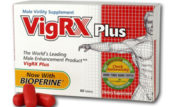By Steven Hutchings
 You need your liver, your lungs, your heart and all the major organs of the human anatomy. But once your brain’s gone, it’s over. And sometimes, having a diminished brain is worse than no mind at all.
You need your liver, your lungs, your heart and all the major organs of the human anatomy. But once your brain’s gone, it’s over. And sometimes, having a diminished brain is worse than no mind at all.
Alzheimer’s disease is a slow breakdown of the brain characterized by loss of mental functioning, including learning, memory and reason, to the point that it affects daily living skills. Patients with alzheimer’s may find it difficult to cook, bathe and dress themselves, among other things, until 24 hour care may eventually be required.
More than just an inconvenience or an inability to recall your Halloween costume in the fifth grade, Alzheimer’s can drastically lower quality of life and place tremendous strain on patient caretakers. The latter is something I can attest to on a personal level – I lived with and cared for my grandmother for five years as she lost her abilities.
There is much we don’t know about this very common ailment that affects an estimated 26.6 million folks the world over. What we do know is that there are steps you can take that could mitigate your risk of this taker of sanity, health and ultimately, both your wellness and that of those around you.
What is Alzheimer’s?
Alzheimer’s disease is a degeneration of grey matter within the brain, characterized by plaque and tangles that kill the surrounding brain cells. People with alzheimer’s tend to produce fewer chemicals, called neurotransmitters, that allow brain cells to interact and communicate.
Serotonin, acetylecholine and norepinephrine are neurotransmitters that tend to dwindle in alzheimer patients.
We should also clarify the difference between alzheimer’s and dementia. Alzheimer’s is a disease and the most common form of dementia, while the latter is simply a group of symptoms caused by disease or various conditions that affect one’s ability to learn, recall facts, and eventually, perform daily functions like cooking and bathing.
Curiously, a new study published in the online edition of Chemical Research in Toxicology documents that the flavoring in buttered popcorn may trigger alzheimer’s.
Alzheimer’s typically hits people over 65. Some estimates suggest that one in 85 people will have the disease by 2050.
Caring for a patient with alzheimer’s can be especially stressful on the primary caregiver, with 24 hour supervision often required. And it taxes society – a conservative estimate puts the costs of caring for a patient with alzheimer’s at $77,500 each year.
How Do You Get Alzheimer’s?
There is still much we don’t know about alzheimer’s and the role that genes play. One gene in particular, apolipoprotein E, or APOE, appears to increase risk of the disease, though other genes may also factor in late-onset alzheimer’s, in which it develops later in life. Thankfully, early onset alzheimer’s is quite rare.
What we do know is that it’s best to adopt a ‘use it or lose it’ approach with the brain, to nourish it mentally and with healthy diet and related lifestyle factors to prolong its ability to properly function. With that in mind, risk factors for alzheimer’s include:
Age – The most influential factor in risk of alzheimer’s disease, the Alzheimer’s Association estimates that 10% of people over 65 are affected, and half of all people over 85.
Gender – Alzheimer’s plays favorites as well. The disease typically strikes more women than men.
Down Syndrome – People with Down Syndrome are at greater risk of early onset Alzheimer’s, which may develop in the 40s or even 30s.
Head Injuries – Numerous studies show that contact sports that include repeated shots to the head increase risk of alzheimer’s and related brain diseases later in life. Three NHL players died in 2011, under circumstances linked to depression from brain damage sustained while playing hockey. Now a study in Neurology claims NFL players are at risk.
 Some doctors take this a step further and claim that simply hitting a soccer ball with your head can lead to brain damage over time.
Some doctors take this a step further and claim that simply hitting a soccer ball with your head can lead to brain damage over time.
Environmental Toxins – There is evidence to suggest that aluminum and other substances may increase risk of alzheimer’s disease.
Low Education – Another argument for the use-it-or-lose-it camp, some studies suggest that patients with low education levels are at greater risk,
And curiously, a new study published in the online edition of Chemical Research in Toxicology documents that the flavoring in buttered popcorn may trigger alzheimer’s. Is nothing sacred?
Prevention of Alzheimer’s
You may have heard an emerging mantra in anti-aging and health circles in recent years: What’s good for your heart is good for your brain.
There is plenty you can do to reduce your risk of alzheimer’s disease. Much of is it common sense; avoid smoking, get plenty of exercise, sleep well and get out a little. This site calls it the Six Pillars of a Brain-Healthy Lifestyle, which we’ll explore in a moment.
Want a brain-friendly and fun alternative sport to take up? Don’t laugh: try ping pong.
By the way, as much as boxing and UFC make great entertainment, combat sports are a first-class ticket to brain disease, including alzheimer’s down the road. Any sport that involves repeated trauma to the head – that’s rugby, hockey and football, among others – puts you at risk. Want a brain-friendly and fun alternative sport to take up? Don’t laugh: try ping pong.
Six Things You Can Do to Reduce Your Risk of Alzheimer’s
Get Regular Exercise – The Alzheimer’s Research Prevention Foundation claims you can cut your risk of alzheimer’s by 50% with regular exercise. And it’s never to late to start. According to this new study, the age at which you start doesn’t matter. What counts is that you move your body often. Aerobics, resistance training and balance-related exercises are great.
Eat a Healthy Diet – Now back to that mantra, what’s good for the heart is good for the brain. Fruits and vegetables are nature’s gift to your health, with research suggesting that omega-3 rich foods, like salmon and flaxseed, being some of the best foods for your brain. Blue berries are good too.
Avoid trans fats and processed foods. Consider the mediterranean diet, which is especially low in saturated fats, and incorporates healthy fats, including olive oil, with oily fish, cheese, anchovies and red wine also being high in antioxidants and good for the brain.
Use Your Brain – Like muscle, if you don’t use your brain and continuously challenge it in new ways, you’re more likely to see it gradually slip away. It may come as no surprise that bilingual seniors may be at lower risk of alzheimer’s disease.
You might join the ranks of folks who use their mental capacity to delay late-onset you-know-what by learning a new skill, like a language or musical instrument. The greater the challenge, the more benefits to your noggin. Try this for example: when you get up tomorrow morning, close your eyes and sign your name on a piece of paper. Is it legible? Do the same with your non-dominant hand.
For a good resource of fun quizzes and exercises that will keep your synapses firing on all cylinders, check out sporcle.com.
Sleep Well – Deprivation of sleep reduces both your ability to think and recall information. While some adults may get away with less, the vast majority of people need at least eight hours of sleep per night. Less than that and your brain gets cranky. Creativity suffers and life just feels groggy.
Alleviate that with proper sleep hygiene. Go to bed and rise at the same time every day, including weekends. Avoid sleeping pills. Create a relaxing atmosphere prior to retiring for the evening. Get smart about your sleeping habits and even folks with persistent sleeping problems may find the rest the brain requires.
Manage Stress – We all have a certain degree of stress in our lives; it’s how you manage it that counts. Ongoing stress can shrink the hippocampus, a key memory center in the brain, which can hinder growth of nerve cells and, yes, increase your risk of dementia. So breathe slowly. Take a relaxing bath, meditate or pray. Learn to manage stress in productive, healthy ways.
Have an Active Social Life – People don’t do well in isolation and neither do the brains that take us through life. Research shows that the more connected we are, the better our memory and cognition. There’s no excuse in the Facebook age not to reach out and interact with other people
Useful Websites
We continue to learn about that miraculous thing called the brain with each passing year. In fact, just this week, two new studies show that a new drug, called bapineuzumab, a joint effort between Pfizer and Johnson & Johnson, may even stabilize brain plaque and slow decline in alzheimer patients. For a true brain exercise, try to pronounce that drug.
In the mean time, do your brain a favor and live according to the six pillars of a healthy brain listed above. Combine that with the nuggets of useful information you’ll find on the following sites, and alzheimer’s going to have a much more difficult task in tracking you down.
prevention.com – The leading authority in natural health (after NHS of course!) and how to live well and prosper without extensive prescription medication, check out their list of 8 ways to prevent alzheimer’s. Then live by them.
alz.org – Everything you ever wanted to know about alzheimer’s but were afraid to ask.
theplayfulbrain.com – Who said preventing alzheimer’s can’t be fun? Prominent neuroscientist Richard Restak wrote the book, literally, on how puzzles keep you sharp. Ever tried to support a wine glass with nothing more than a piece of paper? Check out his book, The Playful Brain and find out how to do it.
sporcle.com – Another fun site of brain teasers and puzzles that will keep your neurons on their tippy-toes. Quick – name all countries without the letter ‘A’.
The Car Color Memory Test
The point is that life gets a lot better when you’re doing things to keep your brain sharp. You’d be amazed how doing things out of your ordinary routine can jump-start your creativity. For example, have you ever showered with your eyes closed, and relied ONLY on your sense of touch to get ready in the morning? Don’t do that if you have balance issues, of course. But if you’re game, your brain will love it.
Let’s close with a memory test, courtesy of the good folks at Men’s Health, who cite a professor of psychology at Temple University. Based on the premiss that your memory works best when forced to retrieve information after being distracted, the technique is proven to boost verbal memory by almost 20% after four weeks. Assuming you’re not driving (don’t be a distracted driver!), it goes like this:
 Once a day, note the color and sequence of five cars that drive by, or the same information for cars that are parked. Then distract your brain for about 30 seconds with something unrelated. Now, recall the color of the last car. The one before it? When you can do five cars, try seven or eight. Got those too? Now add the make and model.
Once a day, note the color and sequence of five cars that drive by, or the same information for cars that are parked. Then distract your brain for about 30 seconds with something unrelated. Now, recall the color of the last car. The one before it? When you can do five cars, try seven or eight. Got those too? Now add the make and model.
+Steven Hutchings




